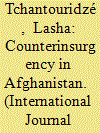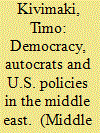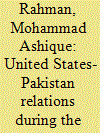|
|
|
Sort Order |
|
|
|
Items / Page
|
|
|
|
|
|
|
| Srl | Item |
| 1 |
ID:
126259


|
|
|
|
|
| Publication |
2012.
|
| Summary/Abstract |
Even amidst the devastation following the earthquake and tsunami in Japan that killed more than 20,000 people, it was the accident at the Fukushima Daiichi nuclear power plant that led the country's prime minister, Naoto Kan, to fear for "the very existence of the Japanese nation." While accidents that result in mass radiological releases have been rare throughout the operating histories of existing nuclear power plants, the growing number of plants worldwide increases the likelihood that such releases will occur again in the future. Nuclear power is an important source of energy in the U.S. and will be for the foreseeable future. Accidents far smaller in scale than the one in Fukushima could have major societal consequences. Given the extensive, ongoing Nuclear Regulatory Commission (NRC) and industry assessment of nuclear power plant safety and preparedness issues, the Center for Biosecurity of UPMC focused on offsite policies and plans intended to reduce radiation exposure to the public in the aftermath of an accident. This report provides an assessment of Japan's efforts at nuclear consequence management; identifies concerns with current U.S. policies and practices for "outside the fence" management of such an event in the U.S.; and makes recommendations for steps that can be taken to strengthen U.S. government, industry, and community response to large-scale accidents at nuclear power plants.
|
|
|
|
|
|
|
|
|
|
|
|
|
|
|
|
| 2 |
ID:
124416


|
|
|
|
|
| Publication |
2013.
|
| Summary/Abstract |
After a decade of bloodshed and suffering, the western-sponsored coalition in Afghanistan led by the North Atlantic Treaty Organization (NATO) has failed to win the "hearts and minds" of locals. The tremendous sacrifices by the United States, Canada, and their allies have produced some tangible results, but steps forward have been made on the shaky ground of overall insecurity and violence and have primarily been associated with certain urban developments, while most of Afghanistan remains deeply rural in its feudal social order and conservative Islamic traditions. Although the Canadian experience in Afghanistan has been very different in its scope and objectives from the Soviet Union's operations of the 1980s, certain important parallels, particularly concerning counterinsurgency, can be discerned.
|
|
|
|
|
|
|
|
|
|
|
|
|
|
|
|
| 3 |
ID:
112115


|
|
|
| 4 |
ID:
095124


|
|
|
|
|
| Publication |
2010.
|
| Summary/Abstract |
Myanmar has been one of a number of countries that the new American Executive branch selected for policy reconsideration. The Obama administration's review of relations with Myanmar, characterized as a 'boutique issue' during the presidential campaign, has received considerable attention in 2009, and in part was prompted by quiet signals sent by both sides that improved relations were desirable. Begun as an intense policy review by various agencies, it has been supplemented by the first visits in 15 years to the country by senior US officials. The policy conclusion, that sanctions must remain in place but will be supplemented by dialogue, is a politically realistic compromise given the strong congressional and public antipathy to the military regime and the admiration for Aung San Suu Kyi, whose purported views have shaped US policies. US claims of the importance of Myanmar as a security and foreign policy concern have also been a product of internal US considerations as well as regional realities. US-Burmese relations since independence have been strongly influenced by the Cold War and China, whose strategic interests in Myanmar have been ignored in the public dialogue on policy until recently, with US policy focused on political and human rights concerns.
Attention is now concentrated on parliamentary and local elections to be held in 2010, after which the new constitution will come into effect and provide the military with a taut reign on critical national policies while allowing opposition voices. Future relations will be strongly influenced by the transparency and freedom both of the campaigning and vote counting, and the role-if any-of the opposition National League for Democracy. Strong scepticism exists in the US on prospects unless the Burmese institute extensive reforms. The Burmese military, presently controlling all avenues of social mobility, will have a major role in society for decades. The article initially evaluates US policies towards Myanmar prior to 1988, when a military coup marked a negative shift in US-Myanmar relations, from cooperation to a US sanctions regime. It looks at the influence China's involvement in Myanmar and the role Aung San Suu Kyi have had on the formulation of US policy towards the country and assesses the prospects for the US-Myanmar relationship under the Obama administration.
|
|
|
|
|
|
|
|
|
|
|
|
|
|
|
|
| 5 |
ID:
108881


|
|
|
|
|
| Publication |
2011.
|
| Summary/Abstract |
United States-Pakistan relations and devising appropriate policy responses surfaced as one of the most critical foreign policy challenges for the United States since late 2007. The heightened US concern followed the simmering growth of suicide terrorism and extremism in Pakistan as well as the unprecedented increase in al Qaeda and the Taliban attack on the US allied forces in Afghanistan staged from the "safe haven" of Afghanistan-Pakistan border areas. Scholars, analysts and the policymakers started to venture what is wrong with US-Pakistan relations. After the tragic event of 11 September 2001, the United States renewed its relationship with Pakistan, and declared it as an "indispensable ally" against the "global war on terror". It has also been incorporated as a "frontline state" in fighting the US-led war against terrorism in Afghanistan. Ironically, this post-11 September deep alliance between the US and Pakistan also coincided with the latest round of military dictatorship of General Pervez Musharraf in Pakistan. Therefore, a comprehensive analysis of US-Pakistan relations during the Musharraf regime might help us in explaining the problems that their bilateral relations are currently facing and may shed light in formulating future policies for Pakistan afresh. The present paper therefore, focuses on three aspects of the US-Pakistan relations during the Musharraf regime. First, it intends to assess United States' policy objectives during the Musharraf era. Obviously, fighting and eradicating terrorism and extremism was a dominant objective, but there were other objectives as well viz., Pakistan's and global security, nuclear non-proliferation, US's economic and strategic opportunities in South Asia, and democracy promotion in the Muslim world. Second, an attempt is made to analyse the strategies that were followed to pursue the objectives? Economic and security assistances are well-known strategies, but, was implicit support to Musharraf's military regime also a part of US strategy? If yes, what explains such strategy especially since it is contradictory to US's grand strategy of democracy promotion? And finally, what results were achieved by pursuing those policies in such particular way? Therefore, the paper would seek answers to such questions: Were the policies pursued by the US appropriate? Were the ways in which they were pursued the most effective way? Is the present situation in Pakistan an outcome of wrong policies or the wrong strategies? And what explains the lack of US' success?
|
|
|
|
|
|
|
|
|
|
|
|
|
|
|
|
|
|
|
|
|